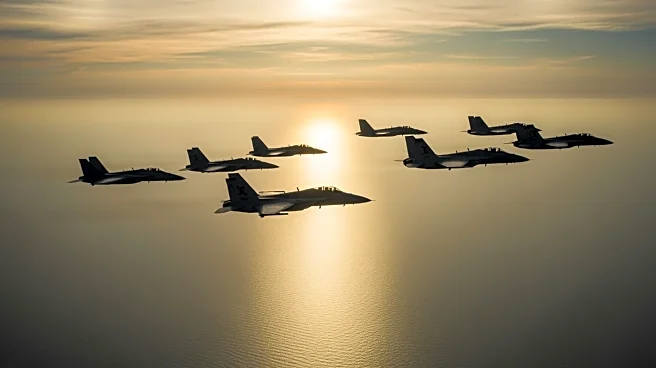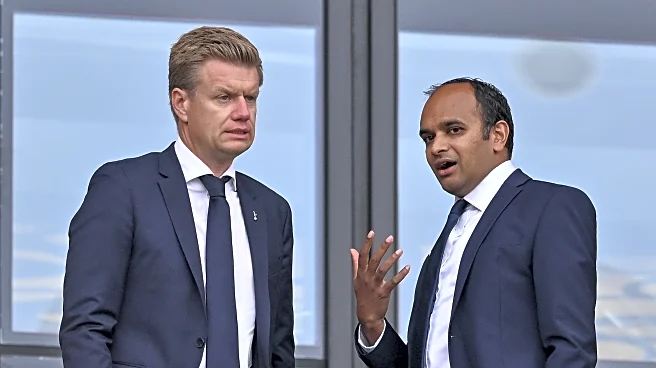What's Happening?
A B-52 bomber flew over the Caribbean Sea near Venezuela, marking a significant increase in U.S. military activity in the region. This flight is part of a broader strategy to apply pressure on Venezuelan
President Nicolás Maduro's government, with recent operations including F/A-18 Super Hornets and RC-135 Rivet Joint aircraft. The Trump administration has intensified its military presence in the southern Caribbean, citing a crackdown on drug trafficking as the primary motive. The U.S. has designated the Cartel de los Soles, allegedly linked to Venezuelan officials, as a terrorist organization, further escalating tensions.
Why It's Important?
The U.S. military's actions near Venezuela represent a strategic effort to disrupt drug trafficking and exert pressure on Maduro's regime. The designation of the Cartel de los Soles as a terrorist organization provides the U.S. with additional tools to justify military operations in the region. This move could lead to increased geopolitical tensions and impact U.S.-Venezuela relations. The military presence also signals the U.S.'s commitment to addressing security threats in the Western Hemisphere, potentially influencing regional stability and diplomatic dynamics.
What's Next?
The U.S. is prepared to apply long-range pressure similar to tactics used against extremist groups overseas. Secretary of Defense Pete Hegseth emphasized the U.S.'s unmatched capability to strike both on land and at sea, with ongoing discussions about future actions. The situation may lead to further military operations or diplomatic negotiations, depending on the U.S.'s strategic objectives and Venezuela's response. The evolving scenario could have significant implications for regional security and international relations.









